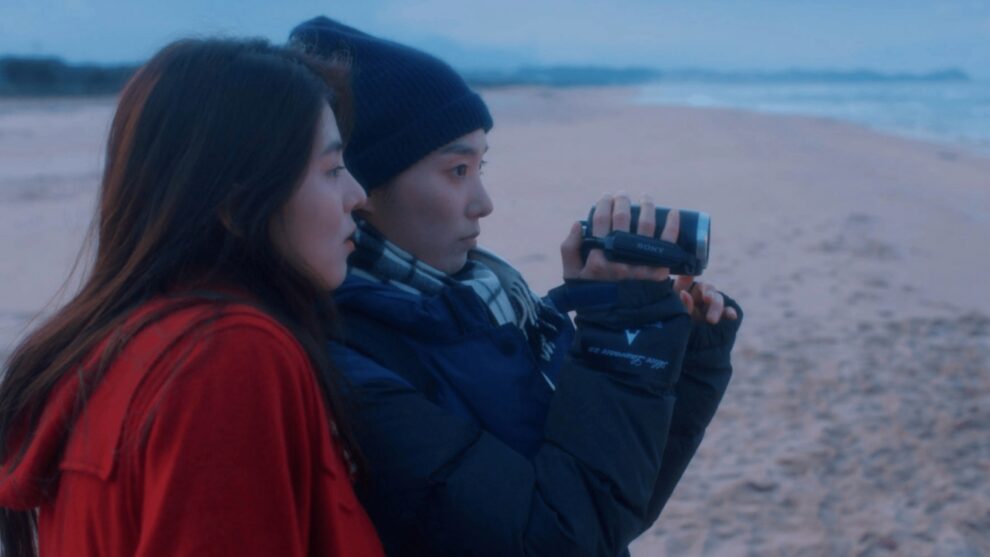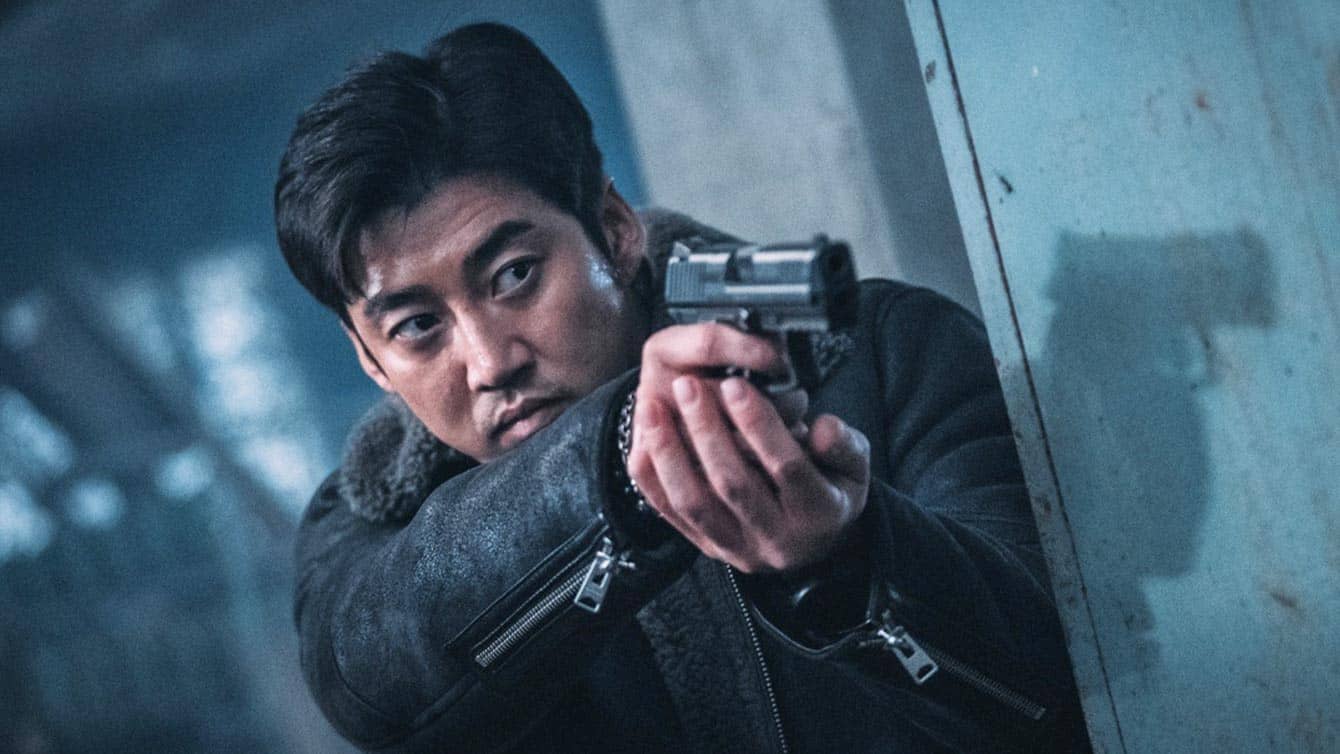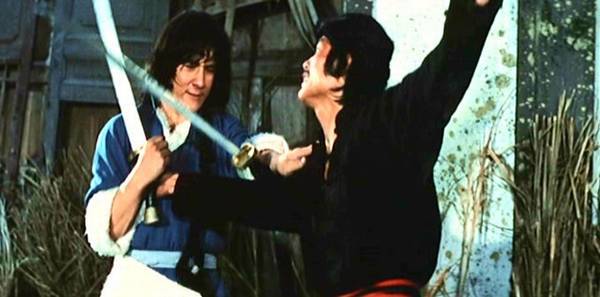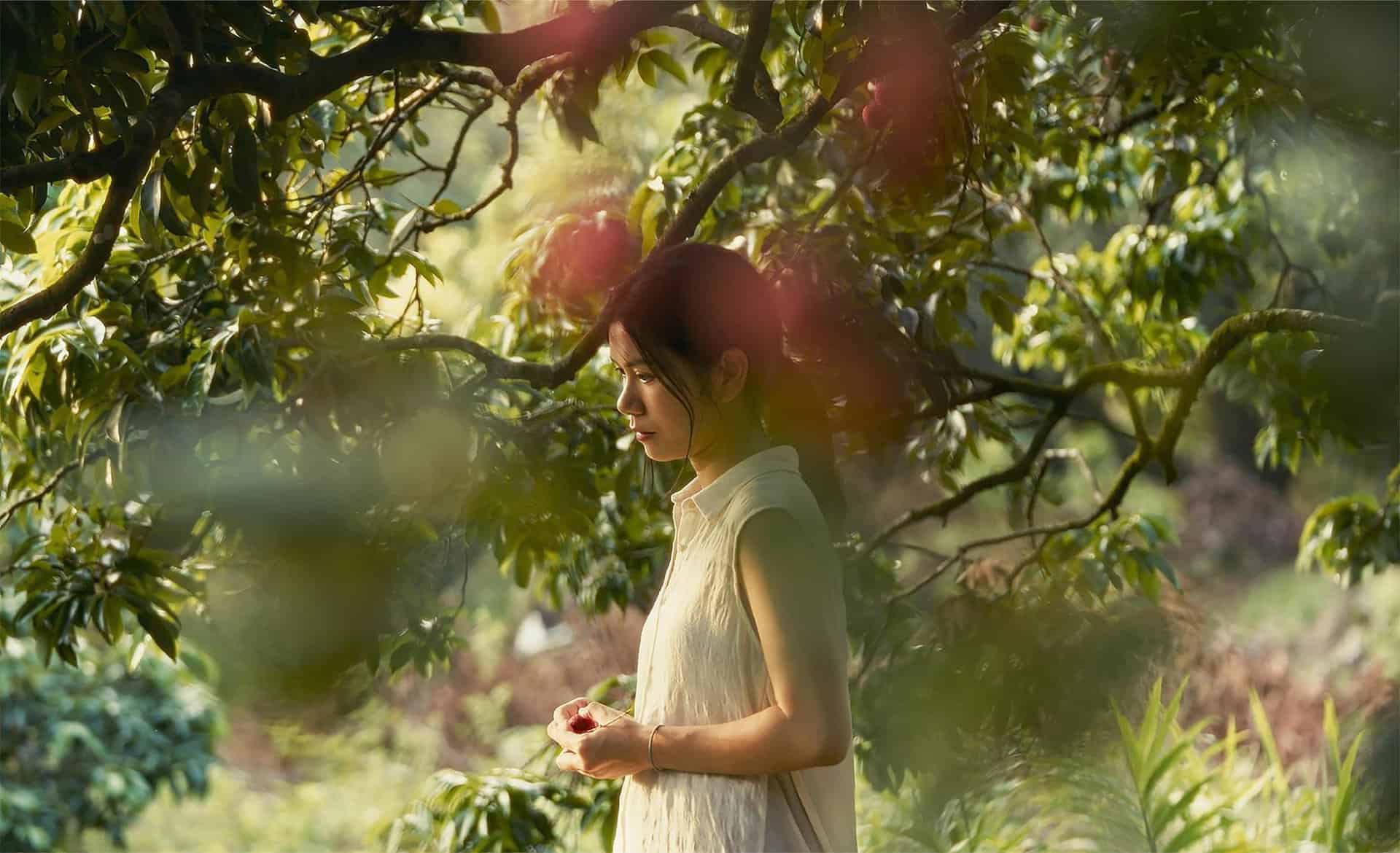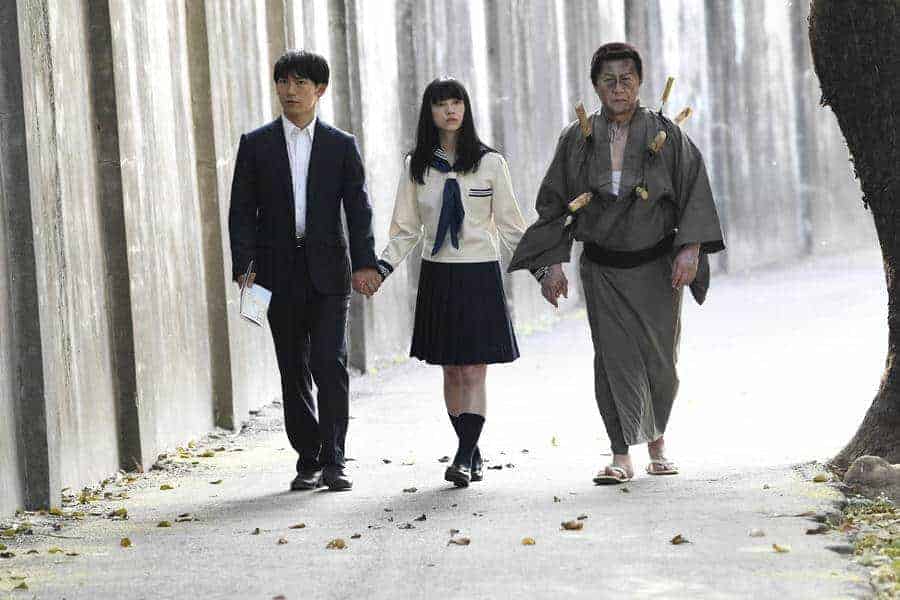Yearning can be a difficult feeling to capture on-screen. Love stories are little without a tragic element, and defining the spaces in between moments of romantic reverie can be a challenge for even the best filmmakers and the most dedicated actors. Yun Su-ik and leading performers Han So-hee and Han Hae-in have taken a surprisingly unconventional approach to a tale of young love with “Heavy Snow”, a slight but cutting series of snapshots of a brief high-school fling that has long-lasting ramifications.
Heavy Snow is screening at BFI Flare

Han Hae-in is Su-an, an acting-major loner living in a small coastal town, introduced by wielding a loaded paintball gun as part of her performance in drama class. When performing Shakespeare, she resembles less of a traditional Hamlet and more of a school shooter, keeping her classmates on the backfoot as she alienates them with her extreme commitment to her version of a classic role. She is unpredictable and highly-strung, giving little away through her hard, cold front. A meeting with new girl Se-ol (Han So-hee) after school causes her to stop dead in her tracks and promptly melt; her classmate is the star of beloved TV dramas like “Teenage Love Counselling” and “School of Hip-Hop” (both fictional, both hilariously accurate send-ups of K-dramas), and Su-an's starstruck reaction soon turns into deep admiration.
Their friendship sees them take trips to the beach and night-drives to Myeong-dong (one of Seoul's hottest shopping districts), and an enthusiastic friendship quickly blossoming into a moment of romantic intimacy. Yet just as quick as the best kiss of their lives arrived, the spark is gone as Se-ol travels back to her life as a TV starlet, leaving Su-an's heart in tatters.
Check also this interview
Structured over three distinct chapters (‘Seol', ‘Su-an' and ‘The Sea), “Heavy Snow” chooses its moments of beauty and heartbreak with precision. Yun's feature's short running time recalls that of a Hong Sang-soo picture, yet his stylistic and narrative approach echoes more along the lines of two of Korea's most striking films of recent years: Davy Chou's “Return to Seoul” and Celine Song's “Past Lives”. The ache of regret seeps deep into the bones of “Heavy Snow”, whether in a moment of drug-addled clarity or a Shakespearean soliloquy that tells more about the actor performing it than the character saying it. Its approach is naturalistic and observant, keeping the emotions at a quiet simmer between the estranged would-be couple.
Better still, the film treats the imbalance of first love between partners with great respect and subtextual thought. Se-ol's role as a teen icon paints her with experience beyond her years, and at the same time, a precociousness that spells danger for her and those around her. Han So-hee's excellent two-faced performance sees her turn between performative emotion and cold-hearted bluntness on a dime, playing expertly in contrast to Han Hae-in's doe-eyed earnestness. Su-an is a creatively frustrated director trapped in the role of a wannabe actor, and her role as a beholder of Seol's beauty works brilliantly as a subtle mirror image of her crush's one-dimensional narcissism. Both actors work marvelously with unannounced time jumps too, effortlessly displaying how the years have impacted them physically and emotionally, giving the stars of the aforementioned acclaimed Korean dramas a run for their money (and on a much lower budget).
By the time this story reaches the end of its line, it has become entirely different to the one it started as. A serious and high-stakes generic shift hits like a plunge into an icy ocean, handled with deft formal control from Yun and brave commitment from both Hans. Their love on the rocks becomes more literal than one could possibly imagine, and the direction the action takes opens up the dramatic possibilities to alarming ends. Whether audiences will go with the flow of Yun's ambitious love story is up to them to cast off their expectations of romances before it and follow him into fresh new territory, one fraught with dangers of the existential and physical kind. Its bleak final note is appropriately staged, leaving a lasting impression of feelings fumbled and shots missed.
Yun's overall picture is a succession of scenes adrift from one another, often lacking in full context and enticingly mysterious in their restraint. One can be forgiven for wanting more of an idea of the external lives of Seol and Su-an, as they seem to exist in a bubble, orbiting each other and no one else. Yet isn't that what first love is? Obsessive, suffocating, deafening, enveloping: it's all here, encompassed with care and affection.


